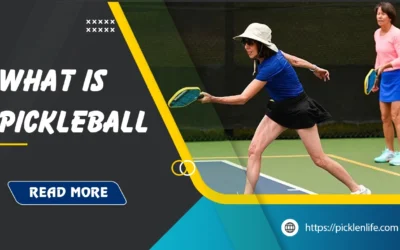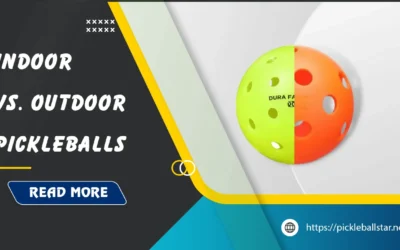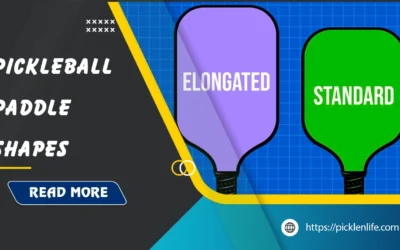Why Is It Called Pickleball? Discover the Story Behind the Name
Pickleball is a fascinating sport that has taken the United States by storm, showcasing a blend of elements from traditional paddle sports and attracting players of all ages and skill levels. From its informal beginnings on Bainbridge Island, Washington, in 1965 to its current status as a competitive game with international recognition, the history of pickleball is as intriguing as its name. The question that many may ask is, why is it called Pickleball? This inquiry leads us to two primary narratives: one involving a playful family dog named Pickles and the other rooted in the world of rowing with the term pickle boat. Let’s delve into these stories to uncover the whimsical origins of this engaging game.
The genesis of pickleball: a family’s search for fun
The summer of ’65 on Bainbridge Island
The story of pickleball begins in the summer of 1965 on Bainbridge Island, Washington. Here, in a search for a family-friendly activity, Joel Pritchard, along with his friends Bill Bell and Barney McCallum, found themselves facing a common predicament: boredom. They sought to create an enjoyable game that could involve the whole family, leading to the birth of pickleball.
Setting up on a badminton court, they experimented with a mishmash of various sports tools. They grabbed ping pong paddles and a wiffle ball, leveraging creativity to craft a new pastime that would delight everyone involved. By adjusting the net height and forming a mix of rules adapted from badminton and tennis, they not only created a game but a shared experience that resonated with their desire for fun and connection. The unique nature of their improvisation is reflective of the essence of pickleball itself, which champions a spirit of inclusivity and accessibility.
Improvisation and innovation
The pioneering spirit of the game’s creators thrives through their innovative approach. They didn’t have a formal structure mapped out; instead, they allowed creativity to guide them. Experimentation played a key role, resulting in an eclectic blend of sports that showcased the hodgepodge nature of pickleball. This improvisational spirit is a testament to the idea that play can be unstructured and spontaneous, catering to the needs of families looking to bond while enjoying a good time together.
As the initial game rules evolved, they reflected a sense of community, turning pickleball into a social activity that could be enjoyed not just for competition, but for connection. The very essence of this improvisation became a hallmark of the game a direct contradiction to formalized sports that often emphasize structures and rules over fun.
Why Is It Called Pickleball?
Pickles the dog: the popular myth explained
The story of Pickles, the cockapoo
One of the delightful narratives surrounding the origins of the game involves Pickles, the Pritchard family’s cockapoo. According to this story, the game was whimsically named after Pickles because of his endearing habit of chasing after the balls during their matches. This charming anecdote humanizes the sport, adding a layer of playful nostalgia that resonates well with audiences.
Families hearing this story might envision a lovable dog frolicking happily on the court, perfectly symbolizing the fun and community-centered approach that defines pickleball as a game. The link to Pickles adds warmth to the name and a sense of whimsy, which captures the imagination and draws people toward the sport.
Debunking the myth: timeline discrepancies
However, as charming as the tale may be, a closer look at the timeline reveals some discrepancies. It turns out that Pickles the dog was not acquired by the Pritchard family until three years after the game was invented. This critical piece of information raises intriguing questions about the true origin of the name. Joan Pritchard, Joel’s wife, and their daughter both expressed in interviews that it seems more likely that Pickles was named after the game, emphasizing the confusion surrounding this narrative.
While the majority of people find the dog story to be an appealing narrative that captures the spirit of fun, the evidence presented indicates a different story behind the name. The interplay between the charming dog anecdote and the original term “pickle boat” shows how tales can evolve and morph over time.
The pickle boat theory: a rowing connection
Joan Pritchard’s rowing background
One of the origins with more credibility lies in the connection to rowing. Joan Pritchard, Joel’s wife, had a background in rowing and crew. This element introduces a fascinating layer to the name’s origin, as it connects to a broader sporting context. Joan’s familiarity with rowing parlance may have influenced the casual suggestion of calling the new game “pickleball”.
The meaning of “pickle boat”
In rowing, a pickle boat refers to a boat manned by a crew of leftover or mismatched rowers who didn’t make it into the preferred winning teams. This notion connects directly to the eclectic nature of pickleball itself, which combines various elements of badminton, tennis, and table tennis. The term’s reference to a crew of misfits perfectly symbolizes how the early version of pickleball brought together different sports elements in a fun and unstructured manner.
Connecting the name to the game’s origins
This insight underlines the significance of the term as it embodies the essence of the sport’s origins. Just like the mismatched rowers coming together to create a team, pickleball emerged from a blend of different sports, creating a unique identity that encourages collaboration and social interaction among its players. The pickle boat metaphor resonates strongly with the playful spirit and community-driven ethos that defines the game, emphasizing that pickleball is about connection, creativity, and camaraderie.
Contradictory accounts and investigations
Conflicting stories from the founders and their families
The narrative of how pickleball got its name isn’t without its contradictions. Various accounts from the Pritchard and McCallum families highlight the complexities surrounding the claim of honor. Some individuals, like Dick Brown and Jim Brown, offer differing versions of the original story, demonstrating how the passing of time can distort the details of an event and form conflicting narratives.
These discrepancies highlight the nature of collective memory, where different individuals recall events through their unique lenses. Such differences only add to the intrigue of the pickleball story, indicating it isn’t simply a straightforward tale of origin. Understanding these varied perspectives emphasizes the rich tapestry of stories and experiences that constitute the history of pickleball.
The investigation into the true origin
One notable investigation into the origins of the name comes from Wayne Dollard, who delved into the question for Pickleball Magazine. Through articles and interviews, he has explored the nuances of the conflicting narratives, further igniting discussions about the truth behind the name. This examination embodies the passion and dedication of the pickleball community, illustrating the lengths to which enthusiasts will go to understand and celebrate the history behind their game.
Why does the debate endure?
The persistence of this debate speaks to our collective desire to unearth the truth and feel connected to the origins of the sports we love. The conversation surrounding the name invites players and fans alike to engage in discussions that generate camaraderie and strengthen community ties. Perhaps it is this very debate that contributes to pickleball’s unique identity, fostering an environment where stories, memories, and friendships are forged.
First-hand accounts from the earliest players
Dick Brown and Jim Brown’s recollections
Early players like Dick Brown recall moments spent at Joel Pritchard’s cabin, discussing the essence of the name. He vividly reminisces about the camaraderie felt during those discussions, revealing how the idea of naming the game emerged from a collective group effort rather than a singular claim. Jim Brown adds depth to the narrative by sharing his experience of witnessing the family discussions about the name, highlighting how Joel’s wife Joanne Pritchard suggested “pickleball”, linking it to the namesake myth that was starting to circulate.
Their recollections underpin the collaborative spirit present at the game’s inception, amplifying the sense of community that pickleball fosters even today. These anecdotal accounts emphasize that pickleball is much more than a sport; it is an integral part of a shared family experience.
David McCallum’s perspective
David McCallum, son of Barney McCallum, offers his insights regarding the early days and the impromptu nature of the game’s creation. His memories of the Pritchard’s cabin echo sentiments of inclusivity that defined pickleball. Barney’s vision for the game aimed to include players of all ages and abilities, reinforcing the idea that pickleball was meant to be a fun activity rather than a strict competition.
This emphasis on inclusivity has become a defining characteristic of pickleball, making it accessible for families, young players, and seniors alike. The stories of early contributors like David McCallum illustrate the foundational value of community that continues to shape the identity of pickleball.
The name’s impact and possible alternatives
Does “pickleball” hinder the sport’s image?
Despite its rapid growth, some in the sporting community ponder whether the name pickleball carries a stigma that could impact its acceptance as a serious competitive sport. The playful nature of the name might lead some to underestimate its potential as more than a casual pastime. However, as the game continues to expand within formal and organized environments, this perception is likely to shift.
Alternate names considered
Initially, alternative names were discussed for the game, including Tenny Pong, a blend of tennis and ping pong. This suggestion underscores the blend of sports elements seen in pickleball while also hinting at a potentially different identity. However, as the community rallied around the existent name, “pickleball” became firmly established in the lexicon of sports.
Broader historical context
Within a broader historical context, the recreational activities and cultural trends of the 1960s certainly influenced the creation and naming of pickleball. The era was marked by individual expression and communal play, reflecting a desire for informal environments where families could gather and enjoy themselves. Pickleball perfectly encapsulates such ideals, representing a return to a simpler form of play that invites enjoyment over competition.
The spread of pickleball: from local game to global phenomenon
Early growth and community involvement
From its humble origins, pickleball began to spread organically throughout local communities. Its inclusive nature, paired with exciting gameplay, attracted families and players from diverse backgrounds, driving the establishment of clubs and leagues that fostered greater engagement.
Key factors in pickleball’s popularity
Several key factors contribute to the sport’s remarkable surge in popularity. Firstly, pickleball’s rules are designed to minimize any advantage from sheer physical strength, allowing players to excel based on skill and strategy. This level playing field has expanded its appeal among various demographics, particularly as it welcomes novices and seasoned players alike.
International expansion
The recent establishment of the International Pickleball Federation has played a significant role in facilitating the sport’s global expansion. Increasing member countries confirm that the reach of pickleball extends well beyond U.S. borders, creating an international community that connects through the love of the game.
Official recognition and milestones
Formation of associations and publication of rules
The formation of the USA Pickleball Association (USAPA) in 1984 marked a pivotal moment in the sport’s maturation process, as it led to the first publication of an official rulebook. Establishing these standards laid the groundwork for pickleball’s legitimacy in the sporting world and facilitated organized play.
Inclusion in major sporting events
Pickleball has steadily gained recognition through events such as the Huntsman World Senior Games and the US Open Pickleball Championships. These platforms not only promote competitive play but also showcase the camaraderie and community spirit that underpin the sport’s identity.
Professionalization of the sport
As the game has continued to thrive, the emergence of leagues like Major League Pickleball has pushed the sport into the realm of professional athletics. This evolution represents a significant leap, indicating that the quirky name does not hinder its growth as a serious competitive activity.
What is the true story?
Analyzing the evidence
When examining the narratives surrounding how pickleball got its name, it is essential to weigh the available evidence, including timelines and interviews with founding figures. Different sources provide a multitude of viewpoints, fostering a deeper understanding of the complexities that come with the stories we tell.
Separating fact from fiction
While the playful anecdotes surrounding the name are intriguing, it is crucial to separate fact from fiction in the context of historical accuracy. Reassessing the testimonies highlights areas of uncertainty but creates an opportunity for continued dialogue about pickleball’s identity and origins.
The actual sound of pickleball
Interestingly, some even draw connections between the sound produced when the ball strikes a paddle and the name pickleball. The playful noises associated with the game invoke imagery of fun-filled matches, further emphasizing the spirited essence of a sport that thrives on joy and togetherness.
Pickleball today: a sport on the rise
Current statistics and participation rates
Recent statistics indicate that pickleball is one of the fastest-growing sports in the United States, with millions actively participating. In fact, the Sports & Fitness Industry Association (SFIA) reported that over 4.8 million people played pickleball in 2022, showcasing the sport’s meteoric rise in popularity.
Pickleball in popular culture
Celebrity players and social media influencers are further boosting pickleball’s presence in popular culture. The sport has garnered attention not just as a pastime but as an emerging lifestyle, leading to increased visibility and interest among younger generations.
The future of pickleball
Looking ahead, many advocates nurture dreams of pickleball becoming an Olympic sport. With ongoing international expansion and growing recognition, this ambition seems increasingly attainable, promising a bright future for pickleball on the world stage.
Conclusion
In summary, the whimsical nature of pickleball’s name unveils an engaging journey steeped in community spirit, playfulness, and creativity. From the pickle boat theory to the enchanting narrative of Pickles the dog, the ongoing debate surrounding its origins enriches the cultural significance of pickleball. The sport embodies a sense of inclusivity and accessibility, welcoming players of all backgrounds to come together, fostering meaningful connections. So, whether you are drawn in by the quirky name or the inviting spirit of play, the essence of pickleball invites you to embrace its history and continue the tradition of family fun and community engagement.











Write Your Review
No reviews yet. Be the first to share your experience!